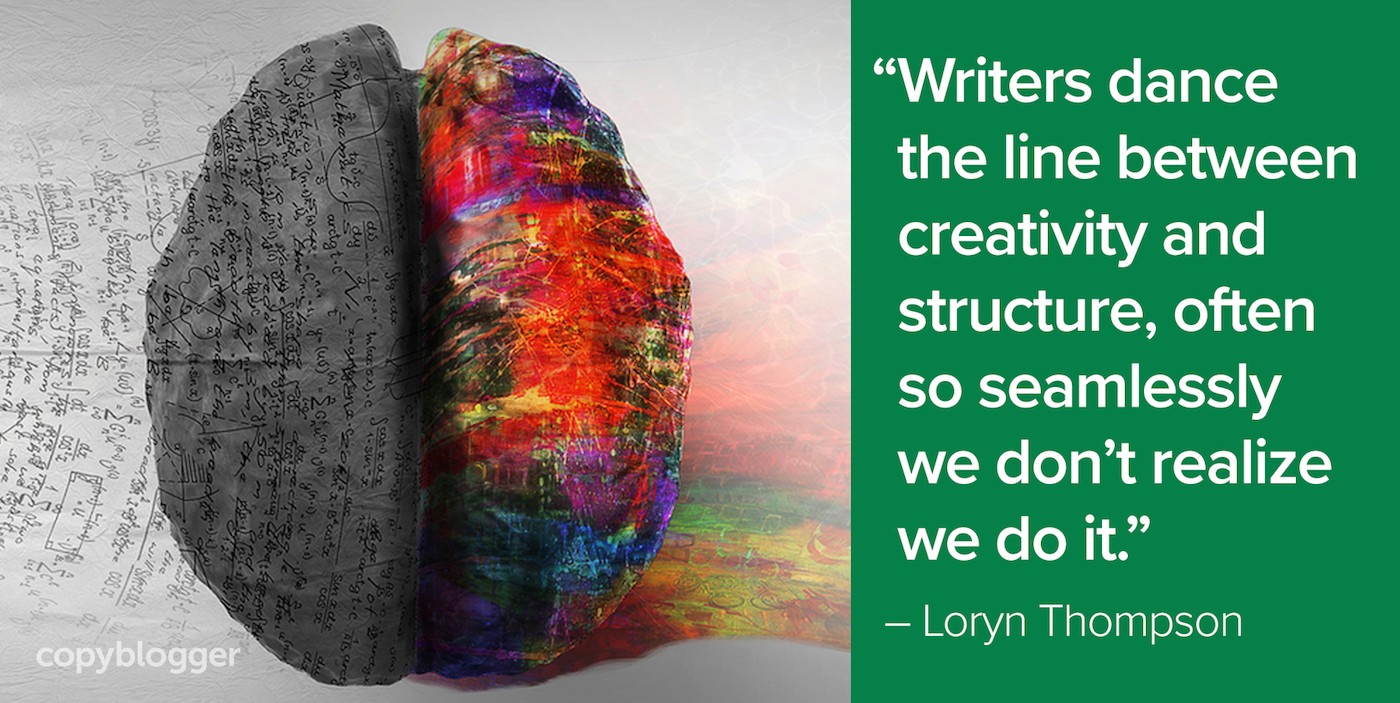Author: Loryn Thompson / Source: Copyblogger

I can’t stand hearing people say they’re “not creative.”
That happened to me recently, after I sliced a finger and wound up in Urgent Care. When the doctor heard that my fiancé is a graphic designer, he launched into a well-rehearsed monologue:
“Oh, my mom is a graphic designer; she’s so creative! I do some design too, but only really as an outlet. I’m nowhere near as creative as she is. I just do it to relax. I mean, I can’t read medical texts all the time.”
Eventually, his rant became more uncomfortable than my still-bleeding pinkie.
I wanted to ask him if he truly thought medicine wasn’t creative.
Had he never encountered a problem he wasn’t explicitly trained to handle in medical school? Had he never improvised, or developed a different way of doing something?
If he really wanted to get better at graphic design, what was stopping him?
For generations, we’ve drawn a line between logic and emotion, creativity and structure: Spock and Kirk. Holmes and Watson. Sense and Sensibility.
And certainly, the distinction exists. Diagramming sentences is one thing … feeling moved to write an inspiring line of poetry, another.
But we’ve gone much further than classification.
Somehow, creativity and logic have attained a mythical status as two oppositional forces, pitted together in an eternal struggle for dominance. Not only is this myth wrong and unnecessary, it’s damaging.
If you believe creativity is something you’re born with, and that some kinds of tasks are creative while others are not, you’ll miss thousands of opportunities to improve.
Two selves, one writer
Maybe the reason this dichotomy bothers me so much is because I’ve always found myself somewhere between the two.
I’m the daughter of two self-professed “logical” people — my mother is a software developer, my father a medical imaging engineer.
But my dad built beautiful doll beds and full-size playhouses when I was a kid, and my mom loves interior design (though she’d never…
Audience Team
The digital audience insights you need to build, manage and market to your digital audiences.

